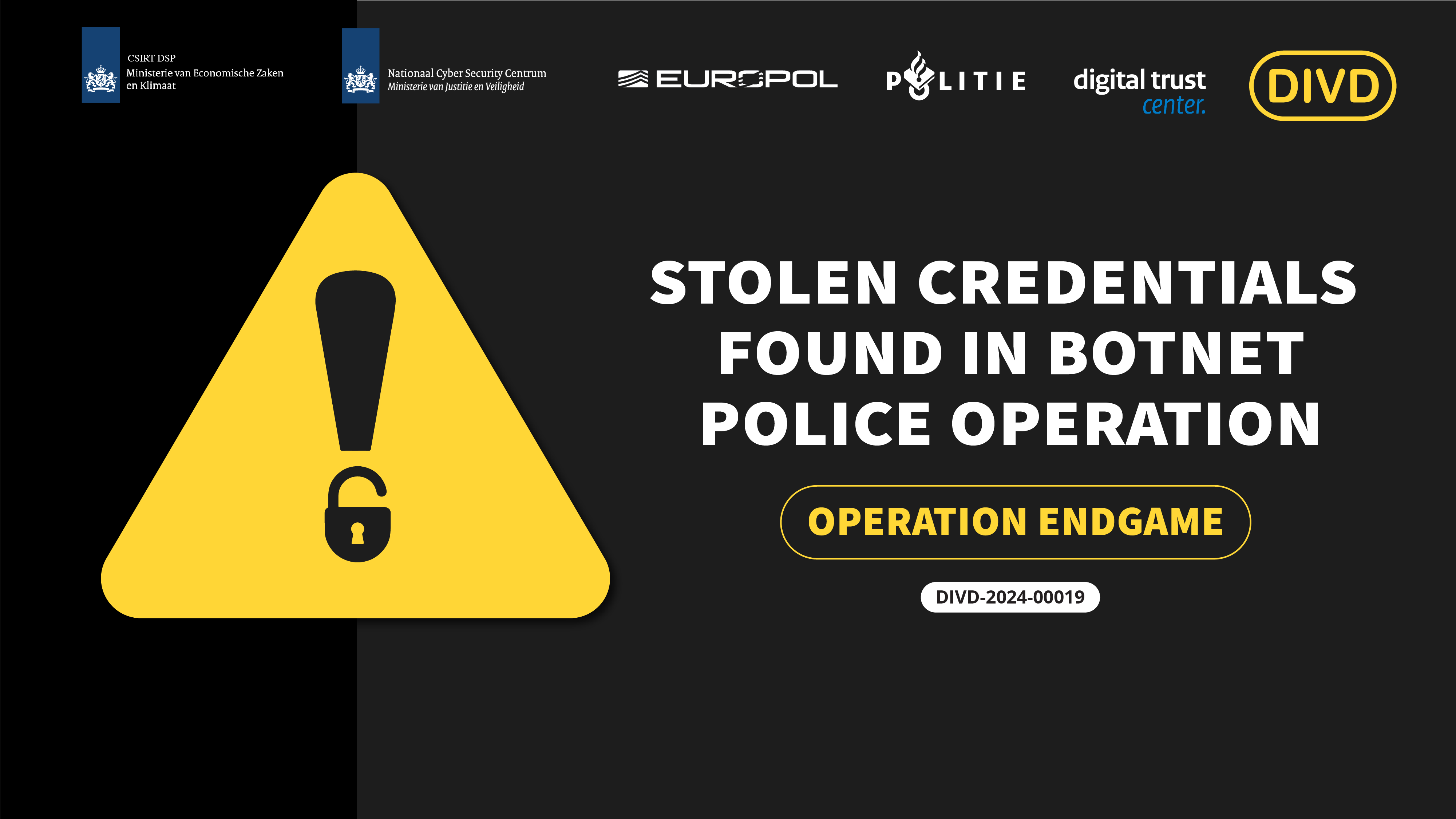What we do
DIVD scans the internet for the presence of Common Vulnerabilities and Exposures (CVEs), which is a list of publicly disclosed security vulnerabilities. When we find vulnerable URLs, we send the owners of the website or system a notification email. This email includes information about the vulnerability that was found, where it was found, and what steps to take to mitigate the risk of exploitation.
In addition to scanning the internet for known and publicly disclosed security vulnerabilities, we also actively search for and discover new vulnerabilities (zero-day vulnerabilities). These are typically unknown to the public and no patch or fix exists for them yet. We share this information with the (software) vendor or owner so they can design a solution. Furthermore, when we detect instances of compromised credentials, we take swift action by alerting affected individuals via email and urging them to immediately change their passwords or take other necessary steps.

Scan the internet for vulnerabilities
Upon discovering or becoming aware of a vulnerability, our CSIRT team conducts an internet scan to identify the systems that are affected.

Reporting the vulnerability to the right people
When affected systems are identified, we reach out to the owners of these systems. The email we send provides them with information about the vulnerability and suggests measures to resolve or lessen its impact.

Zero-day disclosure
DIVD is a CVE Numbering Authority (CNA). We identify vulnerabilities and assign unique identifiers (CVEs). Furthermore, we help security researchers engage with vendors to disclose vulnerabilities.
189
Members
164
Total cases
1.338.459
Vulnerable IPS Notified







